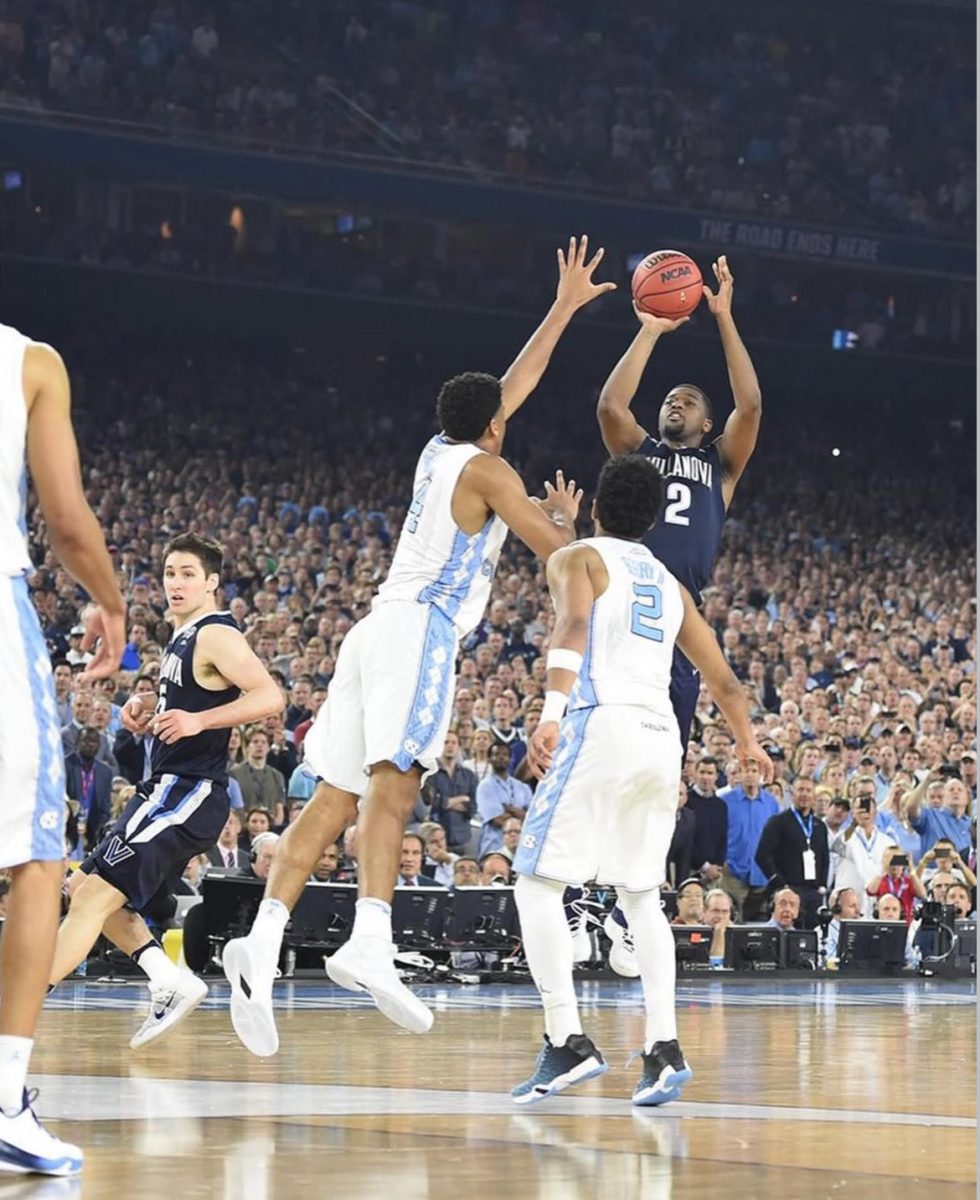In 2016, former Wildcat Kris Jenkins delivered one of the most iconic moments in college basketball history. With a three-point basket at the buzzer, Jenkins led Villanova men’s basketball to a national championship, securing his spot in the college basketball’s list of greatest moments. As time has passed, Jenkins has found himself at the center of a debate that hits home for athletes in every sport: should he be compensated for the continued use of his iconic shot in Villanova’s advertising campaigns?
Division I athletes are no longer just players. They are brands. From social media accounts with millions of followers to personal partnerships with large companies, athletes today have an influence that could have never been predicted at the start of college athletics. However, these benefits do not always translate into a direct financial benefit for the athlete. This is the main premise of Jenkins’ argument. He is suing the NCAA and six of its conferences, including the Big East and the SEC.
“A single student-athlete can make more than seven figures in a single season,” Dylan Johnson, co-Sports Editor of The Villanovan, said.
Name, image and likeness (NIL) contracts were not enacted until 2021, so Jenkins was not offered the kind of compensation for “The Shot” in 2016 as student-athletes are now given.
Villanova has continued to use the footage of Jenkins’ shot in marketing, reaping significant rewards from its use. The University’s brand is undeniably enhanced every time the clip is used for advertising, especially when promoting the basketball program and recruiting new talent, yet Jenkins has received nothing beyond his initial flooring and the title he earned that night. He delivered the shot that solidified Villanova’s place in history, but the lasting impact of the shot has gone far beyond the game itself. Jenkins’ shot led to one of the most iconic moments in not only Villanova history, but in college basketball history as a whole, and he deserves a cut of the financial benefits that come from Villanova’s use of this moment.
Before they had NIL opportunities, athletes like Jenkins had very limited ways to capitalize on their on-court successes. He is a perfect example of why NIL rights are crucial. College athletes – the students that, for many people, make or break college decisions – should have the ability to monetize their name, image and likeness, especially when they have provided something as valuable as a national championship.
At the heart of this issue is a matter of fairness. Is it fair for Jenkins to receive compensation for a moment that has been cherished by fans for years, and will continue to be praised in the future? It is his moment and his legacy that continues to bring attention to the Villanova basketball program.
Jenkins’ name and image are synonymous with Villanova’s success, but he is left without receiving the financial benefits of all of his hard work. This is something that needs to change, not only for Jenkins, but for future athletes who will also create defining moments for the university.
In a time when athletes are being commodified for simply being great at their sports, Kris Jenkins is completely justified in wanting compensation for the use of his game-winning 2016. Jenkins is not just asking for what he deserves, but he is speaking up for a greater cause that will benefit future generations of athletes. The time has come for the NCAA to recognize that athletes should be compensated for the legacies they create, whether it’s through game-winning shots or simply being part of the story.



